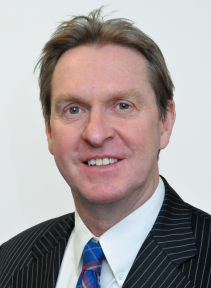 “Mobile is eating the world.” Next June will see the tenth anniversary of the launch of the iPhone. Without a doubt, the impact of the smartphone has been enormous, and for healthcare providers the continued growth in smartphone use has major implications going forward—especially since more than half of patients/consumers now say that they want to be able to interact with their clinicians through smartphones and mobile apps.
“Mobile is eating the world.” Next June will see the tenth anniversary of the launch of the iPhone. Without a doubt, the impact of the smartphone has been enormous, and for healthcare providers the continued growth in smartphone use has major implications going forward—especially since more than half of patients/consumers now say that they want to be able to interact with their clinicians through smartphones and mobile apps.
Furthermore, the rise of “liquid expectations”—when favorable experiences with consumer products (such as the iPhone and the anticipation of new versions each year) raise expectations in other industries (healthcare in this case)—increases the pressure on providers such as the NHS to modernize and embrace consumer technologies. Failure to respond to these new expectations will create a vacuum, which provides opportunities for new disruptive technologies and systems created by the for-profit sector.
Although interest in and adoption of connected health is biased toward younger individuals (more than half of 18 to 34 year olds report owning at least one health monitoring device), increasingly patients see themselves as consumers and appear to be enthusiastic about their own ability to monitor their health, which will require much better data integration and sharing.
The flip side to this is that healthcare bureaucracy itself is perceived as a drag on the realization of connected healthcare. According to one recent report from a large technology company, South Africa and the United Arab Emirates lead the way when it comes to healthcare technology adoption: “The younger generations find this normal. In emerging markets, it’s their solution because there is no legacy system. The smartphone is the only way to talk to a doctor or a nurse, or to do a simple check during pregnancy.”
In the UK how many NHS hospitals or primary care teams have built smartphone applications to engage with their customers? Here in the US many large hospitals are providing apps, but less than 2% of their target populations use them due to a combination of poor experience, unappealing design, and inept functionality.
Apparently, the minimum requirements for a successful medical app are (a) access to electronic medical records; (b) the ability to book, change, or cancel appointments; and (c) being able to fill prescription requests. However, ignoring the needs of individuals and building technologies that try to cover all possibilities is a guaranteed failure. The needs and expectations of generations X, Y, and Z are very different from older populations and technologies will need to take this into consideration. A one size fits all medical app will be an expensive dud.
In the US, the Federal Communications Commission has already posted five questions to “ask your doctor about digital health.” Being unable to answer them will not be perceived as forgivable:
• I’ve heard that digital tools can help me get healthier or stay well. What can you tell me about digital health?
• Are there any digital health tools that would be particularly useful given my diagnosis?
• Does your practice have a patient portal?
• Does your patient portal include e-visits?
• What are the best sources of health information for patients on the web?
In the UK, the NHS can choose to ignore this digital health revolution given its position as a monopoly health provider for the majority of citizens. Yet this may be a dangerous route in terms of survival in its current form—the lure of the private sector may become irresistible.
Unless providers offer digital health technologies that their customers want, hospitals and GP surgeries are risking not only their own financial health, but also lost opportunities to help individuals and their families take better care of themselves.
David Kerr wears many hats—physician; editor of Diabetes Digest; and founder of DiabetesTravel.org, a free service for travellers with diabetes, and Excarbs.com, which focuses on exercise and insulin. He is director of research and innovation at the William Sansum Diabetes Center in Santa Barbara, California, and mHealth lead for the Diabetes Technology Society (unpaid). You can follow him on Twitter (@GoDiabetesMD).
Competing interests: The author has no relevant competing interests to declare.
